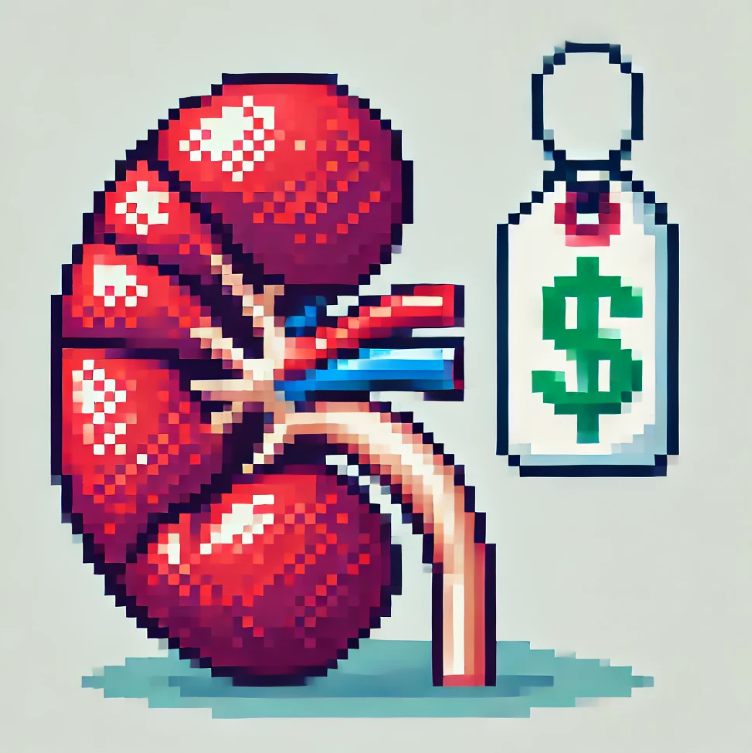
Unseen Scars: The Human Cost of Organ Trafficking
In a dimly lit room in a quiet village, far from the bustling cities of Bangladesh, a life-altering decision is made. A young man struggling to feed his family agrees to sell his kidney. He is promised a sum that could lift them out of poverty, at least temporarily. But what he doesn’t realize is that he’s about to enter a dark and dangerous world where promises are broken and lives are forever changed. This is not just the story of one man; it’s the reality faced by thousands in Bangladesh and Egypt, where organ trafficking thrives despite legal prohibitions.
The Shadowy World of Organ Trade
Organ trafficking is a global crisis, a grim reality that persists in the shadows of society. In 2007, the World Health Organization estimated that 10% of all organ transplants involved illegally obtained organs. This number, though staggering, has likely increased due to the rise in chronic diseases and the desperate need for organ transplants. The focus of this discussion centers on Egypt and Bangladesh, two countries where organ trafficking has taken root, fueled by corruption and socio-economic disparities.
Despite the stringent laws in both countries, the organ trade flourishes, thriving in a murky underworld where human desperation meets unscrupulous opportunism. The research from this article dives deep into the intricacies of this trade, revealing how corruption and inadequate social support systems are key factors that perpetuate this illegal industry.
A Vicious Cycle of Desperation and Corruption
Imagine a father in Egypt, his daughter clinging to life, needing a kidney transplant that he cannot afford. The public healthcare system, overwhelmed and underfunded, offers no hope. The only option? A black market where kidneys are sold to the highest bidder. This father, driven by love and desperation, turns to an organ broker. This broker, often just as poor and desperate, finds someone willing to sell their kidney for a fraction of the price the father will pay. The operation is performed in a local hospital, where corrupt officials and medical staff turn a blind eye in exchange for a cut of the profit.
This scenario is not just a hypothetical; it’s a reality that plays out repeatedly in Egypt and Bangladesh. The research highlights that in both countries, the organ trade is sustained by a symbiotic relationship between poverty-stricken sellers and corrupt intermediaries. The sellers are often the most vulnerable—uneducated, impoverished, and disenfranchised. They sell their organs out of sheer necessity, unaware or misinformed about the long-term health risks. Meanwhile, the buyers, driven by the fear of losing a loved one, rationalize their involvement in this illegal trade.
The Role of Corruption
Corruption is the lifeblood of the organ trade. In Egypt, despite the introduction of strict laws in 2010 to curb organ trafficking, the trade continues unabated. Corrupt officials, from law enforcement to medical professionals, play a pivotal role in facilitating these illegal transactions. The research reveals that in Bangladesh, similar patterns emerge. Law enforcement officers, who should be upholding the law, are often complicit, accepting bribes in exchange for turning a blind eye.
This pervasive corruption makes the organ trade a low-risk, high-reward crime. For those involved, the potential profits far outweigh the risks, especially when legal repercussions are easily avoided through bribery. The tragic irony is that the very systems meant to protect citizens—healthcare, law enforcement, and the judiciary—are the ones enabling this trade.
Human Lives Reduced to Commodities
The organ trade strips away the humanity of those involved, reducing them to mere commodities in a market driven by supply and demand. A kidney, a liver lobe—these are not just body parts; they are the means of survival for both the seller and the recipient. Yet, in this transaction, it is often the seller who loses the most. Health complications, social stigma, and a paltry financial return are the common outcomes for organ sellers.
For recipients, the moral implications are profound. Many justify their actions by convincing themselves that the transaction is a fair exchange—money for an organ. But this justification ignores the broader socio-economic context that forces people into such dire decisions. The research underscores that the organ trade is not just a medical or legal issue; it’s a profound ethical dilemma that challenges our notions of morality and human rights.
Breaking the Cycle
The solution to organ trafficking does not lie solely in harsher penalties or more stringent laws. As the research suggests, the root of the problem is the lack of social support and public health infrastructure. In countries like Egypt and Bangladesh, where public health expenditure is minimal, and access to healthcare is limited, illegal organ trade becomes a desperate alternative for those in need.
To break this cycle, there must be a concerted effort to improve public healthcare systems and provide adequate social support to the most vulnerable. By increasing public expenditure on healthcare and making organ transplants more accessible and affordable, the demand for illegal organs can be reduced. Additionally, tackling corruption at all levels is essential. Without addressing the corrupt practices that enable the organ trade, any legal measures will remain ineffective.
A Call to Action
The organ trade is a human rights issue that demands global attention. It’s a crisis fueled by poverty, corruption, and inequality—issues that cannot be solved overnight. However, by bringing this issue to light and advocating for systemic change, we can begin to dismantle the structures that allow this trade to thrive.
Imagine a world where organ transplants are accessible to all, regardless of socio-economic status. A world where no one is forced to sell their organs out of desperation. This is not an impossible dream but a goal that requires collective effort and unwavering commitment to social justice.
What can we do to help end organ trafficking? How can governments, NGOs, and individuals work together to create a world where the illegal organ trade is a thing of the past?
Unlock Science Secrets
Discover revolutionary research and innovative discoveries with ‘This Week in Science’! Designed for educators and science lovers, our free weekly newsletter offers insights that can transform your approach to science. Sign up now and deepen your understanding and passion for science. If you liked this blog, please share it! Your referrals help This Week in Science reach new readers.



